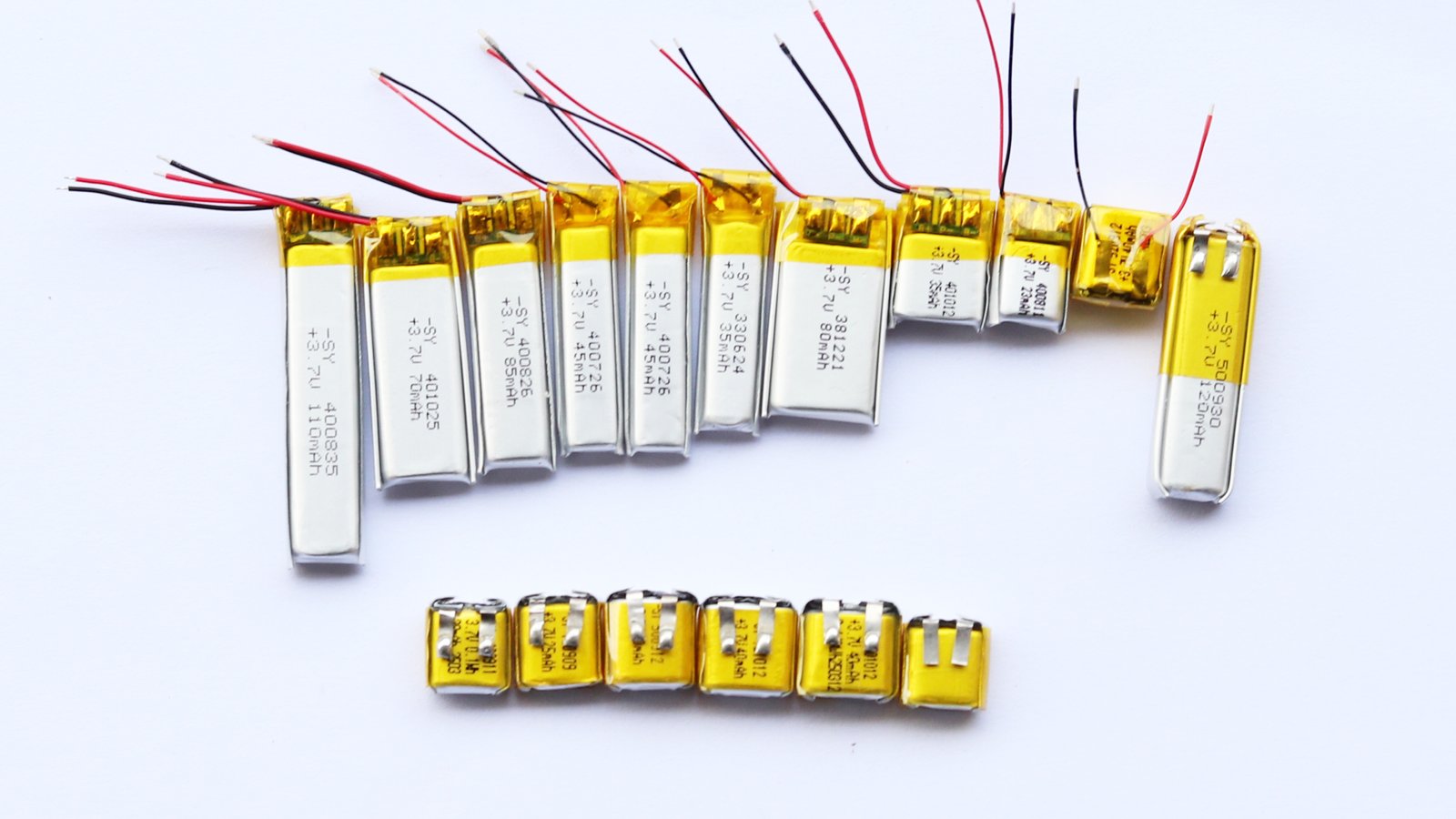
Lithium polymer (LiPo) batteries power smartphones, drones, cameras, laptops, and remote-controlled devices, making them essential for travelers. However, airline regulations regarding LiPo battery transportation can be confusing.
Yes, lithium polymer batteries are allowed on airplanes, but they are subject to strict regulations. Airlines enforce capacity limits, packing rules, and storage restrictions to prevent fire hazards and ensure passenger safety.
Table of Contents
ToggleTable of Contents
- Why Are LiPo Batteries Regulated on Planes?
- International Airline Regulations
- Carry-on vs. Checked Baggage
- Spare Battery Limits
- How to Pack LiPo Batteries for Air Travel
- How to Calculate Battery Watt-Hours (Wh)
- What Happens if You Don’t Follow Battery Regulations?
- Conclusion
Why Are LiPo Batteries Regulated on Planes?

Lithium polymer batteries store high energy in a small package, making them prone to thermal runaway if damaged, overheated, or improperly packed. This can lead to fires, explosions, and toxic fumes, posing a serious risk during flights.
Common Safety Risks:
- Overcharging → Can cause swelling or explosion.
- Short circuits → Can lead to sparks or fire.
- Physical damage → Punctured batteries can ignite.
- Overheating → High temperatures can cause thermal runaway.
✈ To prevent these hazards, aviation authorities enforce strict LiPo battery transportation rules.
International Airline Regulations

Different aviation authorities regulate how and where you can carry LiPo batteries.
| Regulatory Body | Allowed in Carry-on? | Allowed in Checked Baggage? | Capacity Limit |
|---|---|---|---|
| FAA (USA) | ✅ Yes, under restrictions | ❌ No (except installed in devices) | Max 160Wh |
| IATA (International) | ✅ Yes, if properly packed | ❌ No (spares prohibited) | 100Wh (no approval), 100-160Wh (airline approval) |
| EASA (Europe) | ✅ Yes | ❌ No (except installed in devices) | Max 160Wh |
💡 Key Takeaway: Spare batteries must always be in carry-on luggage. Checked baggage is not allowed, except for batteries installed in devices.
Carry-on vs. Checked Baggage
✅ Allowed in Carry-on Luggage:
- Batteries installed in devices (e.g., laptops, cameras, drones).
- Spare batteries under 100Wh (without airline approval).
- Spare batteries between 100-160Wh (with airline approval).
❌ NOT Allowed in Checked Baggage:
- Loose or spare batteries.
- Batteries over 160Wh.
- Damaged, swollen, or recalled batteries.
📌 Why? Checked baggage is stored in a cargo hold, where fire detection is limited. If a LiPo battery catches fire, it may not be noticed in time.
Spare Battery Limits

Passengers can carry spare batteries, but there are strict capacity and quantity limits.
| Battery Capacity | Allowed Quantity | Approval Required? |
|---|---|---|
| Below 100Wh | Unlimited (reasonable amount) | ❌ No |
| 100Wh – 160Wh | Max 2 batteries | ✅ Yes (airline approval) |
| Above 160Wh | ❌ NOT allowed | ❌ Not permitted |
🔹 Tip: Carry only the batteries you need for your trip to avoid delays at airport security.
How to Pack LiPo Batteries for Air Travel

Proper packing prevents short circuits, overheating, or accidental activation.
Packing Guidelines for LiPo Batteries:
✅ Use a LiPo-safe bag to store batteries.
✅ Cover battery terminals with electrical tape to prevent short circuits.
✅ Pack each battery separately in original packaging or plastic cases.
✅ Do NOT place batteries near metal objects (keys, coins, etc.).
✅ Keep batteries in your carry-on bag, away from pressure or impact.
⚠ Never carry damaged, swollen, or recalled LiPo batteries on a plane. They pose extreme fire hazards.
How to Calculate Battery Watt-Hours (Wh)
Airlines limit LiPo batteries based on watt-hours (Wh). To ensure your battery complies, use this formula:
🔢 Formula:
Wh = Voltage (V) × Capacity (Ah)
Example Calculations:
- 3.7V, 3000mAh (3Ah) → Wh = 3.7 × 3 = 11.1Wh ✅ Allowed
- 11.1V, 4500mAh (4.5Ah) → Wh = 11.1 × 4.5 = 49.95Wh ✅ Allowed
- 22.2V, 8000mAh (8Ah) → Wh = 22.2 × 8 = 177.6Wh ❌ NOT allowed
🚨 Batteries above 160Wh are prohibited in passenger luggage! Consider shipping them via specialized freight services instead.
What Happens if You Don’t Follow Battery Regulations?
❌ Airport Security Confiscation – If your battery exceeds limits, it may be confiscated.
❌ Fines & Penalties – Violating FAA or IATA rules can lead to legal fines.
❌ Flight Denial – Some airlines may deny boarding if you don’t comply.
✈️ Avoid problems by checking your airline’s battery policies before flying!
Conclusion
Lithium polymer batteries can be taken on planes, but strict rules apply.
✅ Key Takeaways:
- Always carry LiPo batteries in your carry-on luggage (not checked baggage).
- Check battery watt-hours (Wh) to ensure compliance.
- Pack batteries properly in a LiPo-safe bag with terminal protection.
- Obtain airline approval for 100-160Wh batteries.
- Do NOT bring batteries over 160Wh – they must be shipped separately.
By following airline regulations, you can fly safely with your LiPo batteries without any issues.
🚀 Need high-quality LiPo batteries for your business? Contact us for custom battery solutions!

